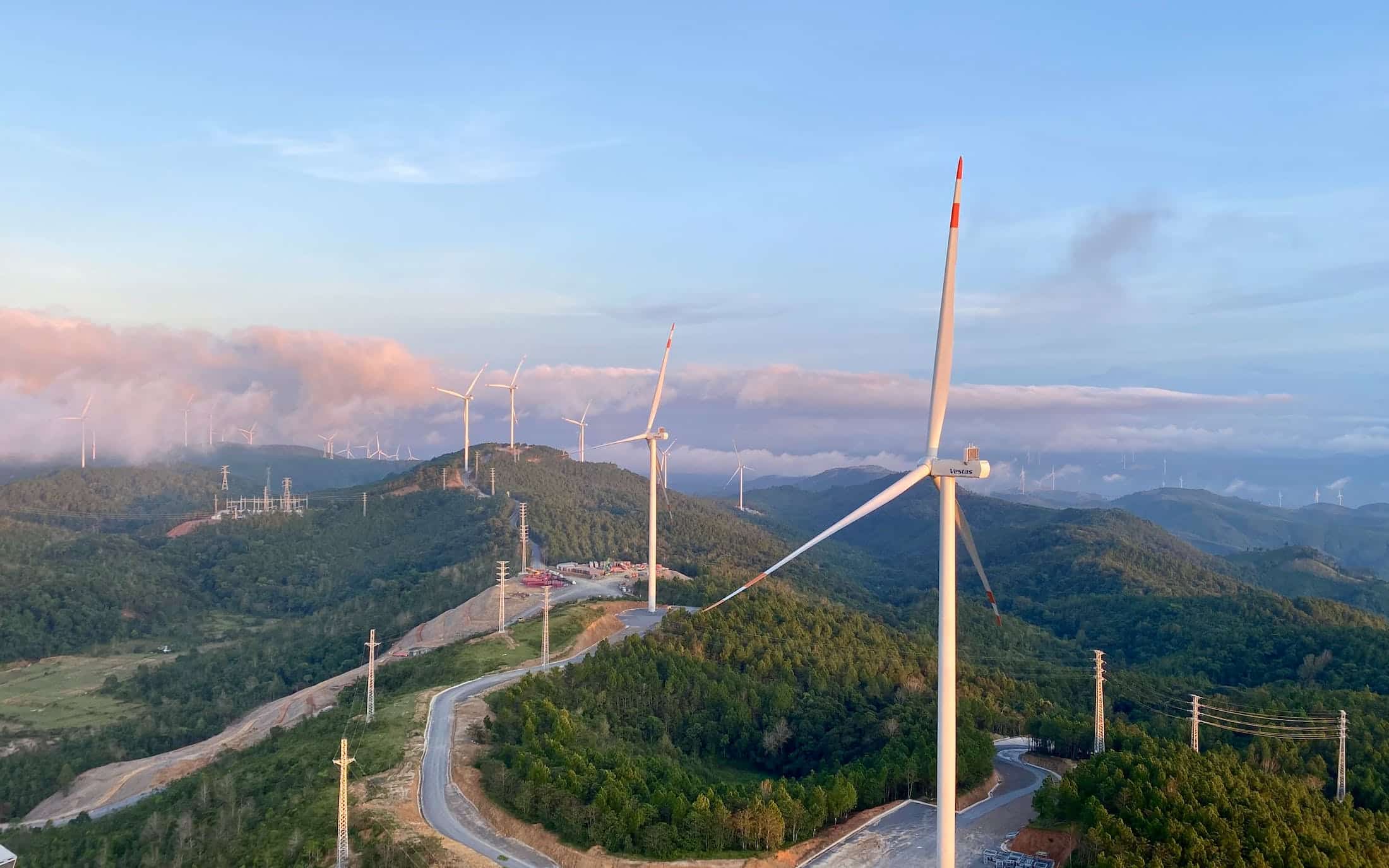
Vietnam has an impressive slew of offshore wind power projects on the drawing board. But due to various technical and legal constraints, the country is unlikely to hit the 6 gigawatt target by 2030.
Offshore wind power is expected to play an important role in Vietnam’s bid for net-zero emissions by 2050. Vietnam’s Power Development Plan 8 (PDP8) envisages a domestic offshore wind capacity of approximately 6 gigawatt (GW), 4 per cent of the country’s total electricity generation capacity, by 2030. This capacity is expected to increase to 70-91.5 GW by 2050, accounting for 14 to 16 per cent of the total electricity generation capacity. However, whether Vietnam can achieve these goals depends on the country’s ability to navigate existing technical and legal constraints.
Vietnam’s typography and climate are naturally disposed to give wind turbines a literal lift. Vietnam currently has no installed offshore wind power capacity, but it has an estimated potential of 475 GW — the largest in Southeast Asia. However, Vietnam currently does not have any “true” offshore wind farms. All its installed sea-based wind projects are operating near its shores. When compared to offshore wind projects, near-shore wind power projects pose more environmental risks while offering less consistent and efficient energy production.
Vietnam has zealously embraced offshore wind power. As of 2022, there were 22 registered offshore wind projects in the northern region and 74 in the southern region. All these proposed projects have a combined capacity of 156 GW, far exceeding the target of 6 GW offshore wind capacity by 2030 by 26 times. Some noteworthy projects include the 3.5 GW La Gan project, the 3.4 GW Thang Long project, the 3 GW Ninh Thuan 1 project, and the 2 GW Ninh Thuan 2 project.
Due to the high costs of offshore wind technology and its novelty in Vietnam, the country has mobilised financial and technical support from foreign energy companies to kickstart the industry. Currently, two-thirds of the proposed offshore wind projects are jointly owned by international and Vietnamese firms.
Vietnam’s typography and climate is naturally disposed to giving wind turbines a literal lift. The country has an estimated offshore wind power potential of 475 GW — the largest in Southeast Asia.
Despite these remarkable figures and positive developments, however, Vietnam might not be able to reach the 6 GW target for offshore wind power by 2030.
First, Vietnam’s national grid is ill-equipped to accommodate the influx of offshore wind power. Excessive development of offshore wind power in the south could result in grid congestion. But transmitting the surplus to the power-hungry northern region is not feasible due to the North-South transmission line’s technical limitations. Thus, to avoid overloading the grid, Vietnam may need to curtail outputs, potentially exposing many offshore wind projects to financial losses. This is similar to what happened to solar and onshore wind projects during the 2019-2021 renewables frenzy, when the authorities asked such energy producers to curtail supply due to infrastructure limitations.
Upgrading the power system to address this issue requires substantial time and financial resources. The World Bank estimates that grid upgrades to accommodate 5 to 10 GW of new offshore wind capacity will take at least five to 10 years of design, planning, and construction work. PDP8 estimates that Vietnam will need US$34.8 to US$38.6 billion for grid infrastructure development. However, state utility Vietnam Electricity (EVN), which is primarily responsible for grid improvement, has been grappling with mounting financial difficulties due to rising input costs. While Vietnam intends to supplement EVN’s grid investments with private financing, specific guidelines have yet to be issued.
Legal uncertainties pose another major obstacle to Vietnam’s offshore wind ambitions. In a document on the implementation of PDP8 presented to the prime minister, the Ministry of Industry and Trade (MOIT) highlighted the absence of a legal framework for EVN and other domestic companies to undertake offshore wind power projects. Specifically, there are no criteria for designating offshore wind power projects, and there is insufficient information on the authorities responsible for granting in-principle approvals for such projects.
Furthermore, Vietnam has not approved the long overdue national Marine Spatial Planing (MSP), which would serve as the legal basis for offshore wind power management and exploitation in conjunction with other marine activities. The drafting of the MSP has been delayed due to various factors, including outdated and incomplete data, the dearth of expertise, the need for coordination with existing plans, and the intricacies of the marine environment.
The lack of specific policies has resulted in case-by-case licensing decisions, which is a burdensome and time-consuming process. While more than 40 offshore wind projects have applied for marine geological surveys, MONRE has only granted licenses to two.
To bolster investor confidence and ensure their commitment, Vietnam should expedite the process of establishing a comprehensive legal framework for offshore wind power. Additionally, a generous feed-in-tariff scheme is necessary to help developers offset the high costs of offshore wind farm construction, especially when EVN has been unwilling to purchase renewable energy at high prices.
The issue of the grid’s weak capacity, however, is more intricate and could well persist beyond 2030. To reduce the risk of curtailment, developers should consider using offshore wind power output to support Vietnam’s other green energy goals, such as electricity export or green hydrogen production. Following Singapore’s recent decision to import offshore wind power from Vietnam, some provinces with high offshore wind potential have expressed interest in exporting electricity to neighbouring countries. According to Vietnam’s National Energy Master Plan, hydrogen output produced by renewable energy is expected to reach 100,000-200,000 tonnes in 2030 and 10-20 million tonnes in 2050.
Despite the country’s wind power potential and slew of offshore wind projects, it is unlikely that Vietnam will hit the 6GW target by 2030. At any rate, the development of an offshore wind project could take seven to 10 years. Some serious rethinking of energy policy might be in order.
Phan Xuan Dung – Research Officer at ISEAS – Yusof Ishak Institute.




